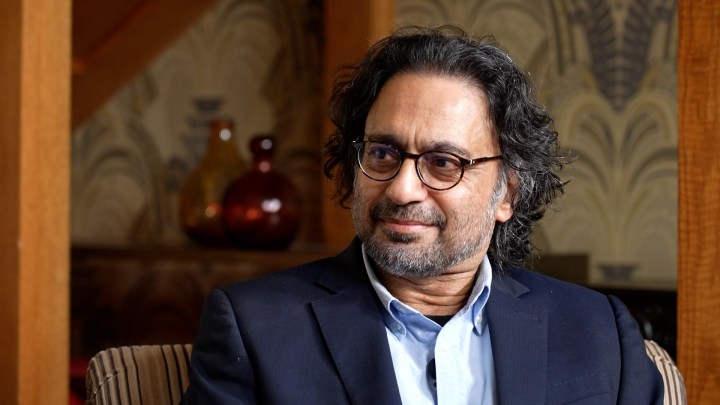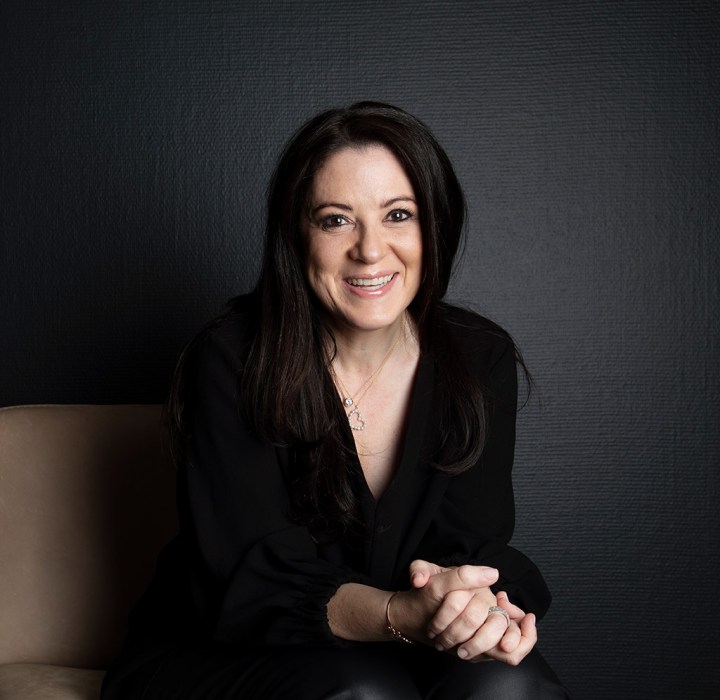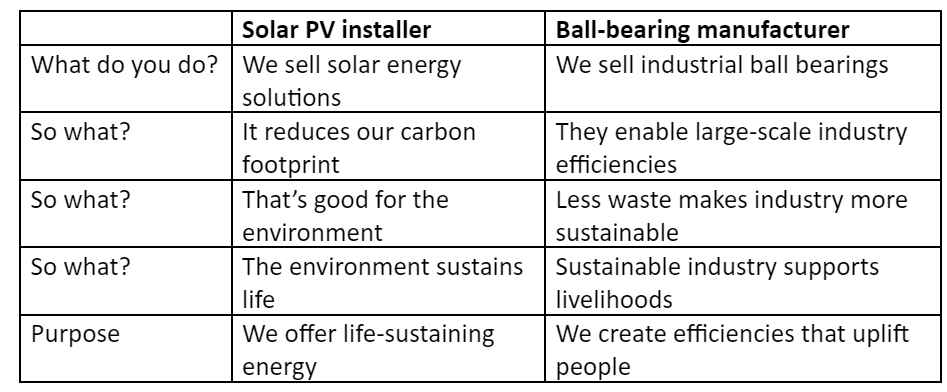SPONSORED CONTENT
Purpose and empathy: The yin and yang of profitability

Reflecting on his journey from physicist to educator, Professor Sudhanshu Palsule shares his thoughts on the importance of organisational purpose, why empathy is a commercial imperative and how we’ve become over-reliant on data to understand human behaviour.
“Over the last 150 years we have gone through three great separations. The first is our separation from nature. The second is the separation from our deepest selves, diluting us into caricatures of the people we should be. And the third is the separation of thought from emotion. The result is that we’ve become less human.”
It’s not often that a list of three holds so much insight. It belongs to leadership philosopher, Professor Sudhanshu Palsule. In the latest Investec Focus Talk, the award-winning educator chats with Lesley-Anne Gatter, global head of People and Organisation at Investec.
Watch the conversation
Prefer to listen on the go?
Covid thrust purpose into the spotlight
“The pandemic really pushed us to articulate our organisational purpose. We always appreciated that our stakeholders are multifaceted, and that we have deep accountability to the society that we work and live within. Covid emphasised that,” said Investec’s Gatter.
“Investec’s journey to articulating our purpose was true to the culture in that it involved the whole organisation. We spent time distilling our call to meaning, and the realities of our existence in this world that is spinning so fast. What emerged was a statement of why and a little of how – ‘we create enduring worth, living in society not off it’.”
Purpose is profitable
If exceptional businesses share one thing, it’s highly motivated people who consistently perform at their best. Why is that so difficult to achieve?
Because the average work environment is dehumanised; profit crowds out purpose; rationality drowns out empathy. In such spaces, we can feel disconnected and anxious, the slow and fast poisons of performance.
Purpose is paramount in any career because it colours our lives with that most elusive elixir: meaning. We will go to great lengths to find, deepen and protect it.
That said, as Palsule points out, purpose alone does not result in the creation of something good. Vladimir Putin has purpose and look how that’s turned out. Only when combined with empathy does purpose drive the creation of something good, something worthwhile, something that imparts enduring value to its stakeholders.
“In the age of AI, people will need to become more human to remain relevant. For me, the development of empathy in organisations represents an incredible leadership opportunity,” said Palsule.
Just care
To be sure, workplaces devoid of the feels suited the mechanic assembly lines synonymous with the last industrial revolution. But that coldness is no longer fit for purpose.
“Complexity is accelerating to a point where we have no idea what’s around the corner. Now we need room for the creativity, imagination, collaboration and experimentation that drive innovation. The task of today’s leadership is to create the right environment and get out of the way,” said Palsule.
The fastest and most effective way to do that? It’s not more processes and procedures. Instead, show your people that you genuinely care about and believe in them.
“While devastating, the Covid pandemic had a transformative impact on the role and task of a leader. In the face of terrible uncertainty and adversity, we adapted to and navigated through uncharted territories. This resulted in shifting from solely task-driven monitoring to a more profound and meaningful approach – one that involves genuinely getting to know those you lead and the very human faculty of empathising with them,” commented Gatter.
She added, “The pandemic forced leaders to recognise the importance of connecting on a human level and understanding the personal struggles and challenges faced by team members. In our thinking this really reinforced the idea of organisational reciprocity, where executives and leaders became acutely aware of the people’s lived circumstance – their diversity, emotional well-being, and contextual realities.”
As we move forward, this shift towards leadership driven by empathy and genuine connection is a welcome hangover from the pandemic. It has shown us the power of authentic human interaction and the incredible impact it can have on both individuals and the overall success of a team.

“Corporates used to believe that the primary goal of a company was to maximise profits, often at the expense of other considerations such as social impact or employee well-being. This narrow focus on shareholders only and financial triumph disregarded the broader impact of business on society and the magic that is aligning purpose with profit.” – Lesley-Anne Gatter, global head of People and Organisation, Investec.
How to find your purpose
Instead of climate-cooling technology or drugs that cure cancer (poster purpose boys), let’s assume your business deals in something more run-of-the-mill, like industrial ball bearings or Solar PV panels.
How can you get to a purpose that is authentic but also meaningful? It’s not easy, but a good technique is to start with what your business does and then keep asking why that’s important.

A purpose need not be grand. Rather, it should be specific to your business; it should matter to your customers; and most importantly, it should help all your people find meaning in their work – they will reward you in tenure and performance.
Stop trying to make it simple
“In the last 15 to 20 years, we’ve turned complexity into a bogeyman. Simplification is now a product you can go out and buy. It makes me laugh. Complexity has been around since the birth of time. Our minds and bodies are complex. Our families are complex. Nature is complex. If it weren’t for complexity, life would come to a standstill,” says Sudhanshu.
Oversimplification is not only dangerous insofar as it dilutes the humility and hunger that sparks innovation – in many ways, denying complexity is the foundation of dehumanised workplaces.
“Corporates, many moons ago, used to view purpose and profit as separate entities. They believed that the primary goal of a company was to maximise profits, often at the expense of other considerations such as social impact or employee well-being. This narrow focus on shareholders only and financial triumph disregarded the broader impact of business on society and the magic that is aligning purpose with profit,” reiterates Gatter.
Distinguishing between purpose, vision, values and strategy
Purpose has unseated strategy as the word most bandied about in office corridors and canteens. “We’re a purpose-driven organisation,” has become corporate commonality. But too often the distinction between purpose and vision isn’t appreciated.
How do leaders and employees separate organisational purpose from values? And where does the old darling of strategy fit in? To separate the four concepts, Palsule suggests leaders ask some vital questions.
“The first is, ‘why do we exist?’ That for me is all about purpose. Your purpose provides that powerful place from where everything begins. I almost see that as the source of a great river somewhere up in the mountains. It’s a spring from where a river emerges. Once we have an understanding of that, very closely on its heels comes the second question, ‘what do we really care about?’ And those are our values. Once those are in place we ask the third question, ‘what are the choices we now made?’ And that’s really what a vision is all about. Where do you want to go? Where do you want to look? How far can you look into the future? And finally – ‘How do we do this?’ And that’s what gives you the strategy.”
According to this organisational blueprint, purpose is the bedrock on which a sustainable, successful business is built, and humans are provided the environment to, well… be human.
Watch another Investec Focus Talk: The 5 important steps of inclusive leadership
DM/BM
















